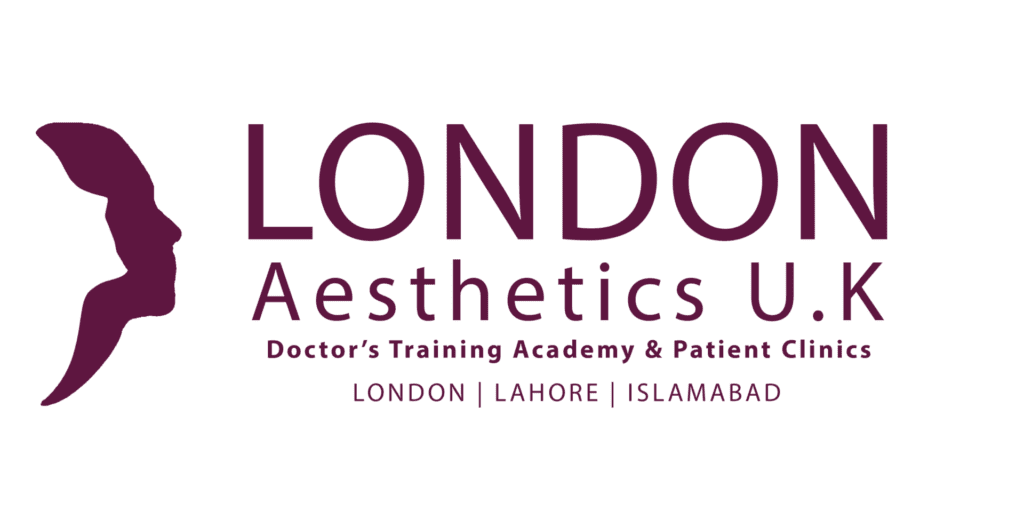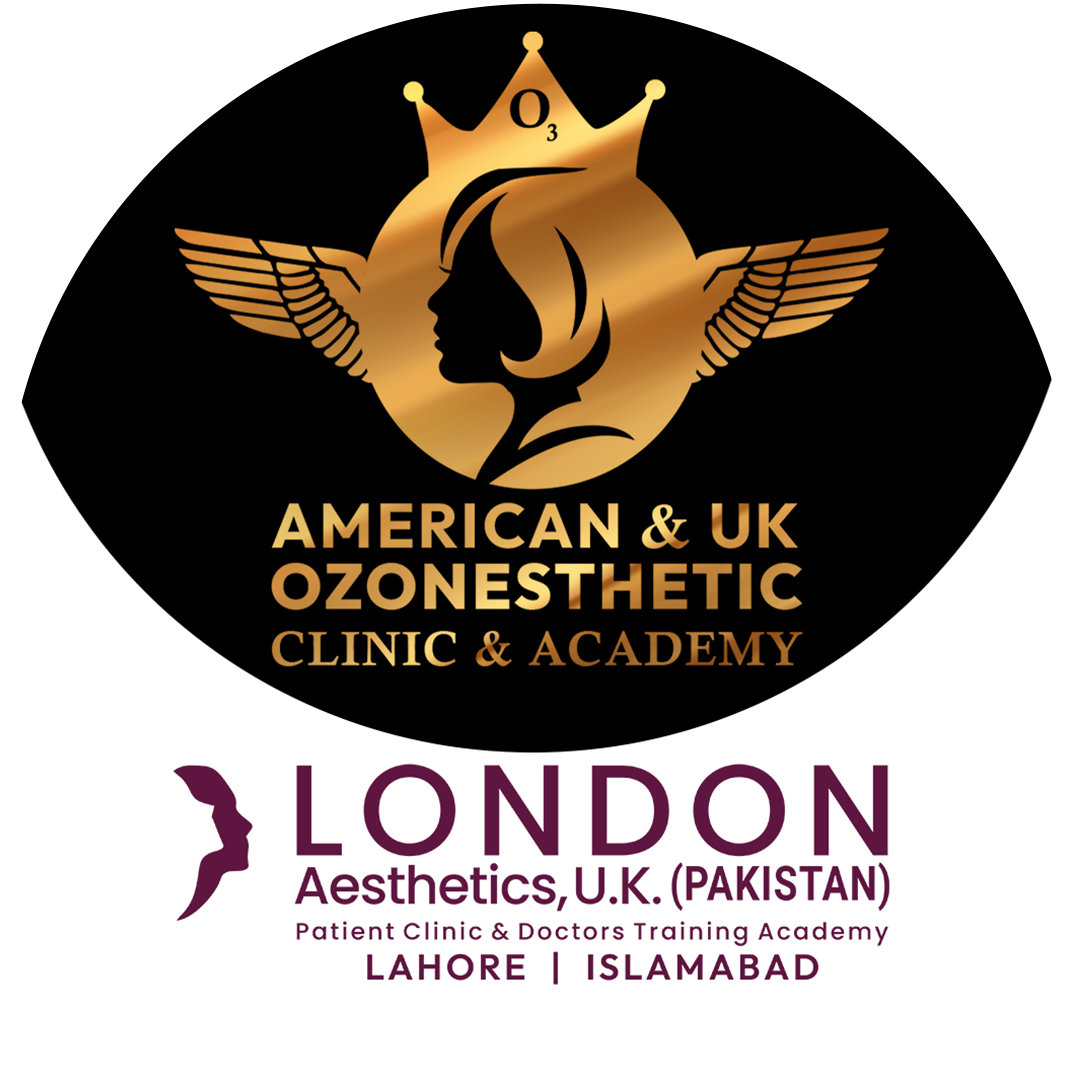The Role of Diet in Skin care: What to Eat for Clearer Skin
Skin care is more than just the products we apply eternally; it begins from within. When it comes to clearer and glowing skin, the saying ‘you are what you eat’ holds the truth. The choices you make in your diet play a crucial role in your skin outlook and health. Incorporating the proper nutrients and foods into your diet can address common skin care concerns, promote a clearer complexion, and support overall skin health.
In this blog, London Aesthetic UK will describe the connection between diet and skin care to beauty enthusiasts. Moreover, this will highlight the best foods for clearer skin, foods to avoid, and actionable tips to help you glow from the inside out.

Role of Diet in Skin Care
The diet you maintain directly impacts your skin’s appearance and health. Human skin is a complex organ that requires a variety of nutrients to maintain its structure, functions, and appearance. It is scientifically proven that a diet rich in fruits, vegetables, and omega-3 fatty acids can significantly reduce skin inflammation and improve hydration, contributing to a clearer and more youthful complexion” (Smith, 2021).
The gut-skin axis is the term that is used by researchers to show the connection between gut health and skin health. An imbalance or malfunctioning of the gut bacteria, dysbiosis, results in many skin-related issues such as acne, eczema, and psoriasis. Also, research has reported that a diet high in sugar, food, processed foods, and unhealthy fats can contribute to inflammation, breakouts, acne, and premature aging.
Essential nutrients should be eaten for better Skin care
Consuming certain foods helps the skin protect from damage-causing substances. The body processes the diet and then shows external results on the skin. So, for better skin care and clearer skin, consider increasing the consumption of foods containing antioxidant-rich diets, healthy fats, hydrating foods, probiotic-rich diets, and foods high in Vitamin A and Zinc.
Antioxidant-Rich Fruits and Vegetables Diet
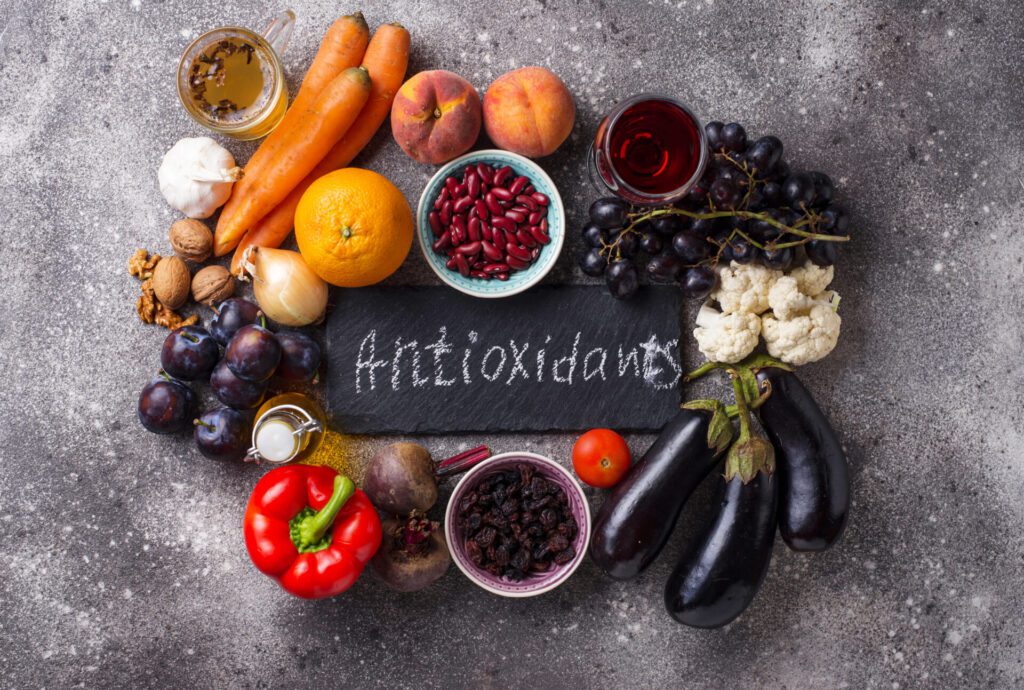
Antioxidant-rich fruits and vegetables provide the essential shield against free radicals, which cause premature aging and other skin-related issues.
- Berries (blueberries, strawberries, raspberries) contain essential vitamins C and E, which help the body produce collagen and promote skin repair.
- Citrus Fruits (oranges, lemons, grapefruits) contain vitamin C, which helps build collagen and fights against UV cell damage.
- Leafy Greens (spinach, kale, Swiss chard): Strands of fruits, including berries and leafy greens, provide vitamins A, C, and E, along with iron and essential minerals that help skin function effectively.
Healthy Fats in Diet
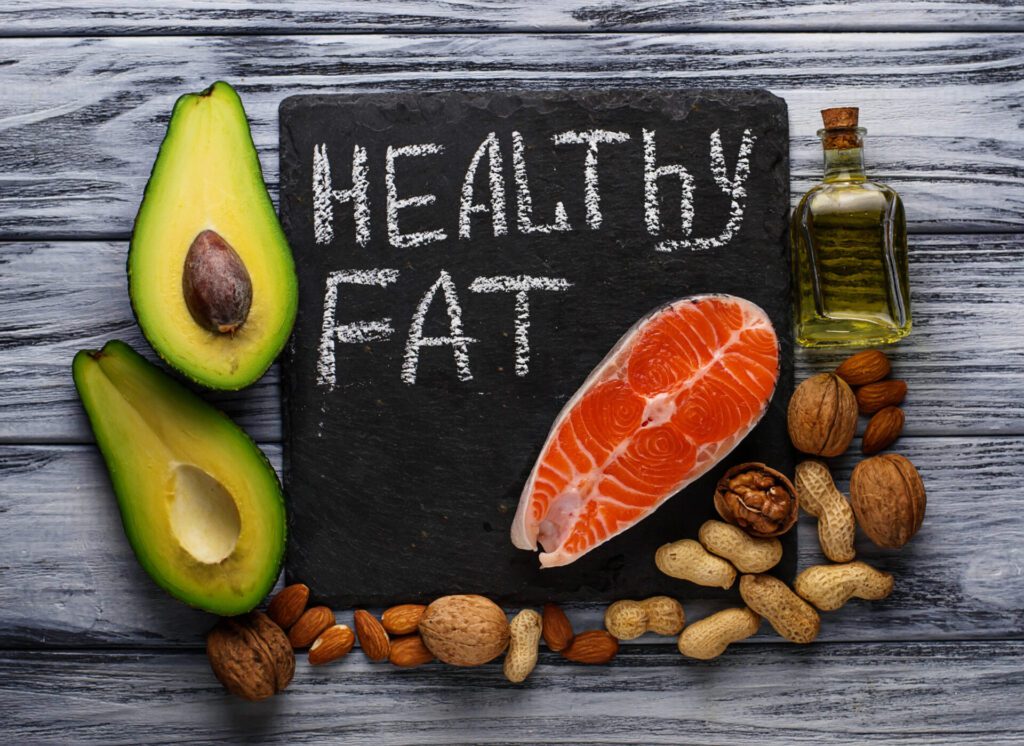
The skin’s lipid barrier is a part of its structure that keeps it hydrated and protected from the environment. Healthy fats are essential in our bodies, and there are several types, such as monosaturated fats (MUFAs), saturated fats (in moderation), and omega-3 fatty acids.
- Avocados: The combination of monounsaturated fats and vitamin E in avocados benefits the skin by creating moisture while fighting inflammation.
- Nuts and Seeds (almonds, walnuts, chia seeds, flaxseeds): These foods contain omega-3 fatty acids that reduce inflammation and help support cell membranes.
- Fatty Fish (salmon, mackerel, sardines): These food sources contain omega-3 fatty acids and vitamin D, which work together to minimize inflammation while improving skin health.
Hydrating Diet
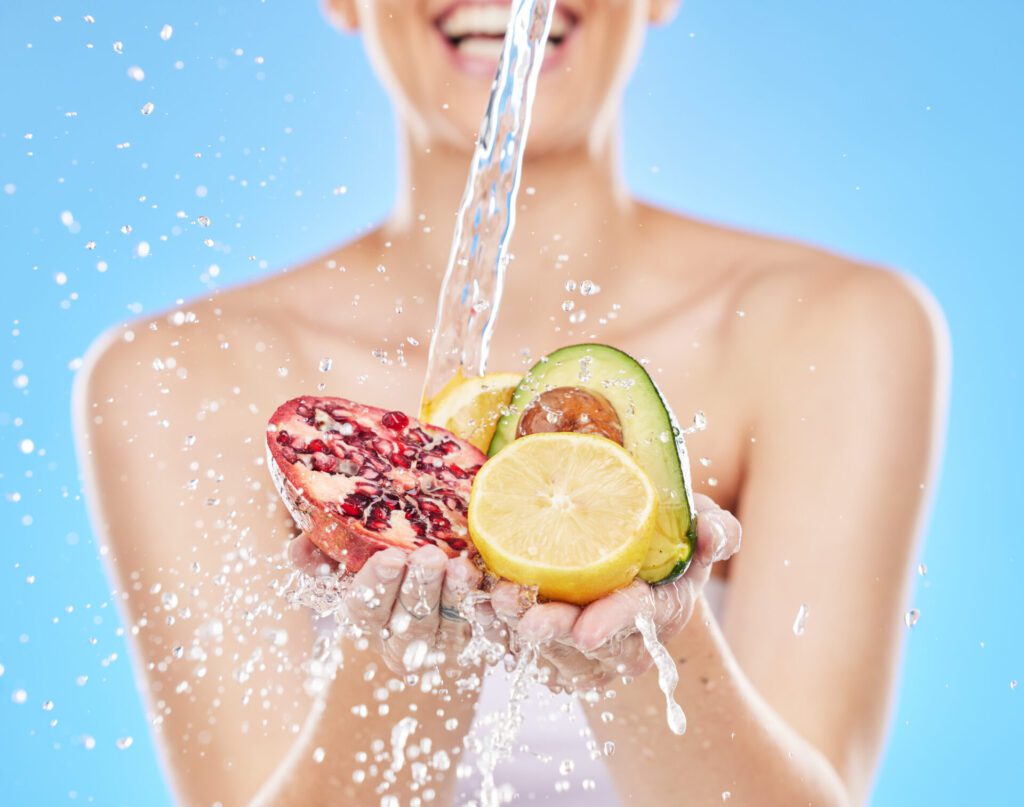
Hydration is essential for plump and youthful skin. In addition to drinking plenty of water, a diet with hydrating foods is crucial to get healthier and clearer skin. These hydrating foods nourish skin from within by maintaining cellular hydration and also support collagen production, improving skin elasticity. Some top hydrating foods for better skin care are:
- Pumpkin Seeds: A powerhouse of zinc and different skin-friendly nutrients.
- Shellfish (oysters, crab): Extremely rich in zinc.
- Chickpeas, lentils, and beans are good veggie sources of zinc.
Probiotic-Rich Diet
Probiotic-rich foods play a significant role in better skin care. A probiotic-rich diet supports the gut microbiome, which is linked to skin health. Probiotic-rich foods also help maintain the skin’s natural barrier function, reduce water loss, and improve skin hydration and risk of infection.
A diet high in Vitamin A
Vitamin A is an essential nutrient that is vital in skin care and health. it helps in skin repair and maintenance. Vitamin A-rich foods include:
Zinc-rich Diet
Zinc is crucial for skin healing and the production of new cells. Zinc-rich foods include pumpkin seeds, chickpeas, lentils, and beans. Your recommended zinc intake varies between 8 to 11 mg according to age and other personal factors, including sex. When you want to understand your zinc consumption or when you require special dietary management, please schedule a meeting with a healthcare professional.
Best Foods to Eat for Clearer Skin
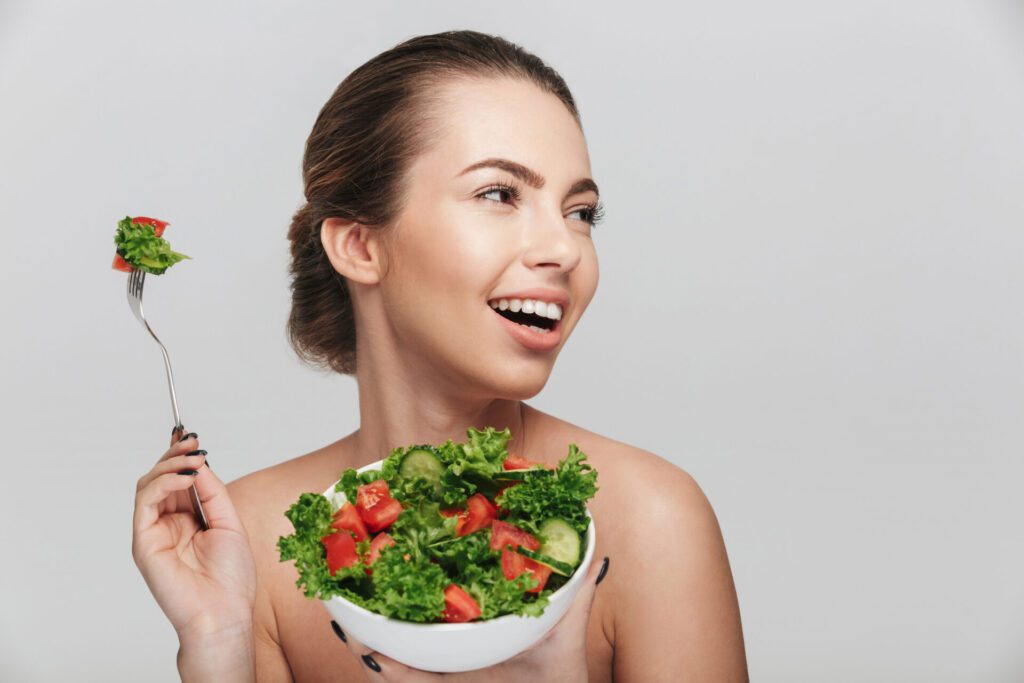
- Fatty Fish
Fish varieties such as salmon, mackerel, and sardines contain omega-3 fatty acids, supporting skin elasticity and keeping skin hydrated properly. The anti-inflammatory benefits of omega-3 fatty acids help reduce acne and related redness while maintaining skin hydration and elasticity.
- Leafy Greens
Dark leafy greens like spinach, kale, and Swiss chard contain powerful amounts of vitamins A, C, and E. Your skin receives protection against free radical harm through antioxidants that simultaneously aid collagen production. Add green vegetables to your dietary choices because they feed your skin while you eat.
- Berries
Antioxidants in blueberries, strawberries, and blackberries fight oxidative stress and provide abundant health benefits to your body. The protective antioxidants in these nutrients stop the aging effects before they start while helping your body fix skin tissue for better complexion health.
- Avocados
As a good source of healthy fats and vitamin E, your skin needs both components to stay hydrated and have that healthy glow everyone desires. Their anti-inflammatory benefits, which minimize irritation while reducing redness, also result in better skin hydration.
- Nuts and Seeds
Consuming almonds, walnuts, and sunflower seeds provides dietary benefits from zinc, selenium, and vitamin E. These nutrients are essential for skin repair and inflammation reduction. They shield skin while blocking dangerous UV rays, making it stronger inside and out.
- Sweet Potatoes
Sweet potatoes contain beta-carotene, which becomes usable vitamin A when processed by the body. Vitamin A protects your skin against sun damage while developing its natural, healthy glow.
- Whole Grains
Whole grains’ essential nutrients, including B vitamins, help maintain healthy skin. Cell turnover requires energy, which whole grains provide. They also have anti-inflammatory properties that reduce skin inflammation.
- Oats are high in antioxidants and anti-inflammatory properties.
- Brown Rice: Consuming magnesium in diets helps people achieve hormonal balance while fighting acne and skin breakouts.
- Quinoa: The nutritional values include protein with fiber and essential vitamins and minerals.
Foods to avoid for clear skin
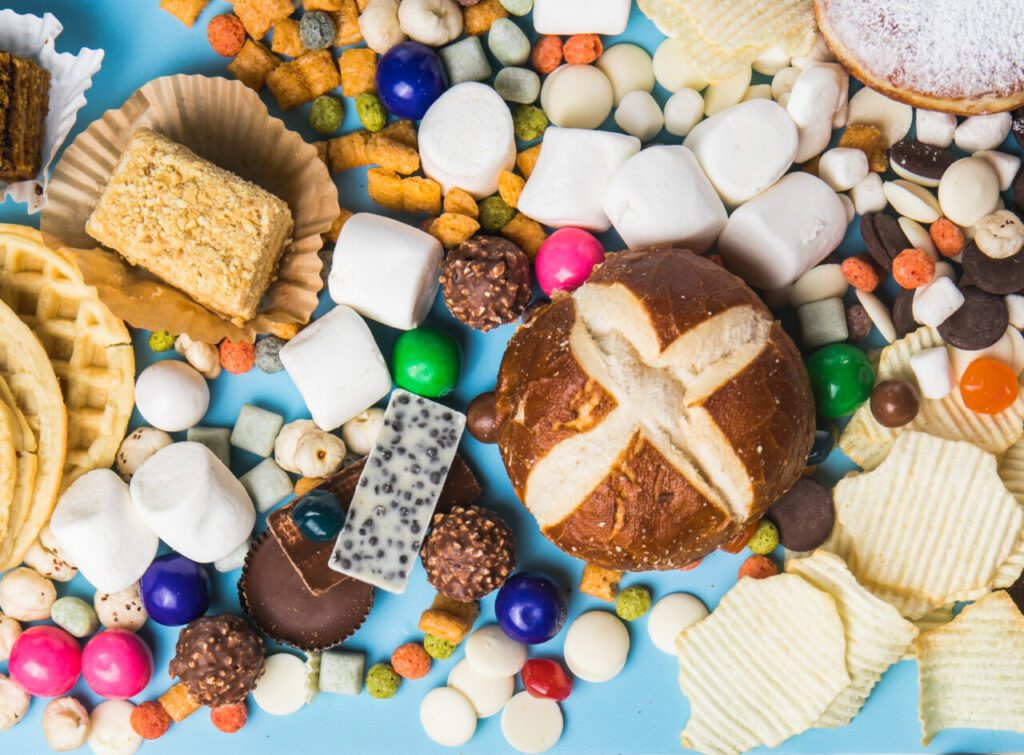
Some foods may help clear skin, while others may worsen the skin or exacerbate conditions like acne. However, the best answer is moderation: keep the intake of food in a more nuanced and balanced way. If you are concerned about acne or want to make sure that you are eating a diet for healthy skin, then consider eating less of the following foods:
Milk and dairy products
Some studies suggest that dairy can exacerbate acne, possibly due to hormones present in milk. A 2016 review figured a link between high blood levels of the hormone IGF-1 and acne severity for some people. So, if you notice skin issues, particularly acne, consider reducing the consumption of original milk, cheese, skimmed milk, and other dairy products.
Processed Foods
Another class of food you should consider avoiding is processed foods. Processed foods often contain unhealthy fats, sugars, sodium, and preservatives that can lead to inflammation or skin problems. Try to convert to unprocessed food for better skin health.
Sugar and High-Glycemic Foods
Research shows that food with a high glycemic index (GI) causes skin issues like sebum production, which leads to acne or other conditions. The high-glycemic foods can spike blood sugar levels, leading to increased insulin production, which can cause inflammation and breakouts. The general and Western-inspired tends to include foods with high GI, including:
- Sugary Cereals
- Chips, Cookies
- White bread
- Sugary beverages and foods with extra added sugars.
It is unlikely that any single food can cause acne if a person eats it in moderation. However, following a diet consistently high in many of these foods may play a visible role in developing issues with getting clear skin and good skin care.
Tips for Building a Diet That Is Skin care-Friendly

- Eat a Rainbow: Eat various colorful fruits and vegetables to ensure you obtain a wide range of nutrients.
- Maintain Hydration: To keep your skin hydrated, consume eight glasses of water or more each day.
- Balance Your Meals: For a well-rounded diet and better sa, include complex carbohydrates, healthy fats, and proteins.
- Reduce Sugar: Use natural sweeteners like stevia or honey instead.
- Include Superfoods: For an added boost, include chia seeds, spirulina, or turmeric in your meals for better skin health.
FAQs
Q1: Can diet alone clear up acne?
While diet plays a significant role in skin care, other factors such as genetics, hormones, and skin care routines also impact acne. A balanced diet combined with proper skin care can yield better results.
Q2: How long does it take to see results from a skin care diet?
You may start noticing subtle changes within a few weeks, but significant improvements can take 2-3 months. Consistency is key.
Q3: Are supplements necessary for better skin?
Supplements can be helpful if your diet lacks certain nutrients. However, it’s best to get nutrients from whole foods whenever possible.
Q4: Can drinking more water improve my skin?
Yes, staying hydrated helps maintain your skin’s elasticity and prevent dryness. For best results, pair hydration with a nutrient-rich diet of hydrated foods.
Q5: Does chocolate cause acne and skin problems?
Anecdotally, many people believe that eating chocolate leads to skin problems and causes sebum production and, ultimately, acne. However, the 2016 review suggests no clear evidence exists between chocolate consumption and acne. It depends on person to person, but encourage people to eat chocolate moderately.
Bibliography
- Smith, J. (2021). The Science of Skincare: How Diet Affects Your Skin. Healthline.
- Brown, A. (2020). “Top Antioxidant-Rich Foods for Healthy Skin.” Journal of Dermatology and Nutrition.
- Patel, R. (2022). Nutrition and Skin Health. Dermatology Times.
- Green, L. (2019). “The Role of Omega-3 Fatty Acids in Skincare.” Clinical Nutrition Reviews.
